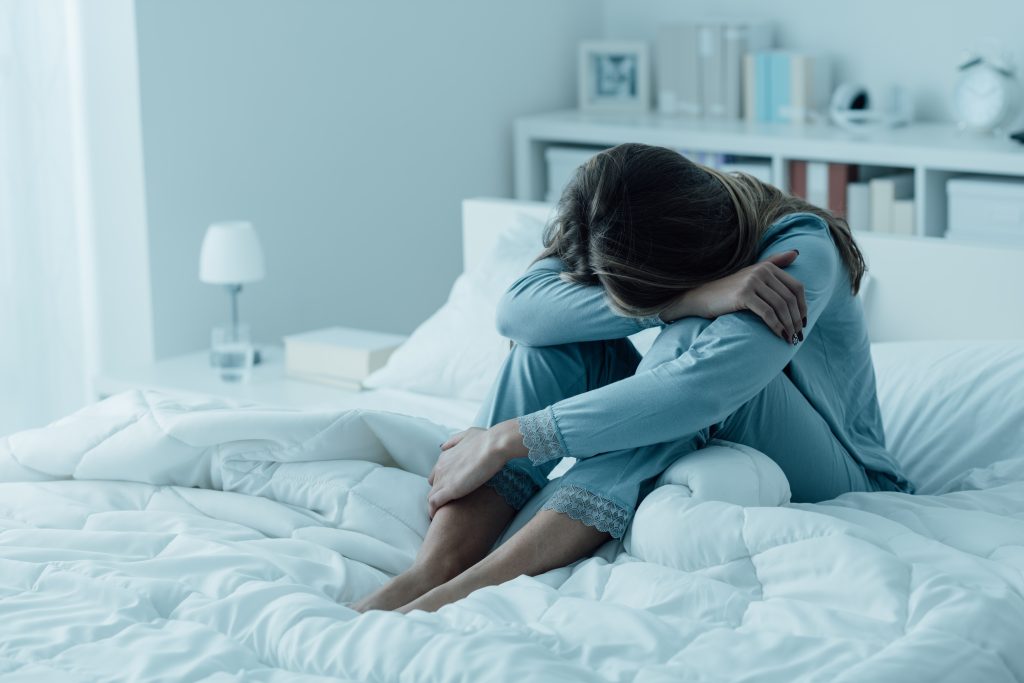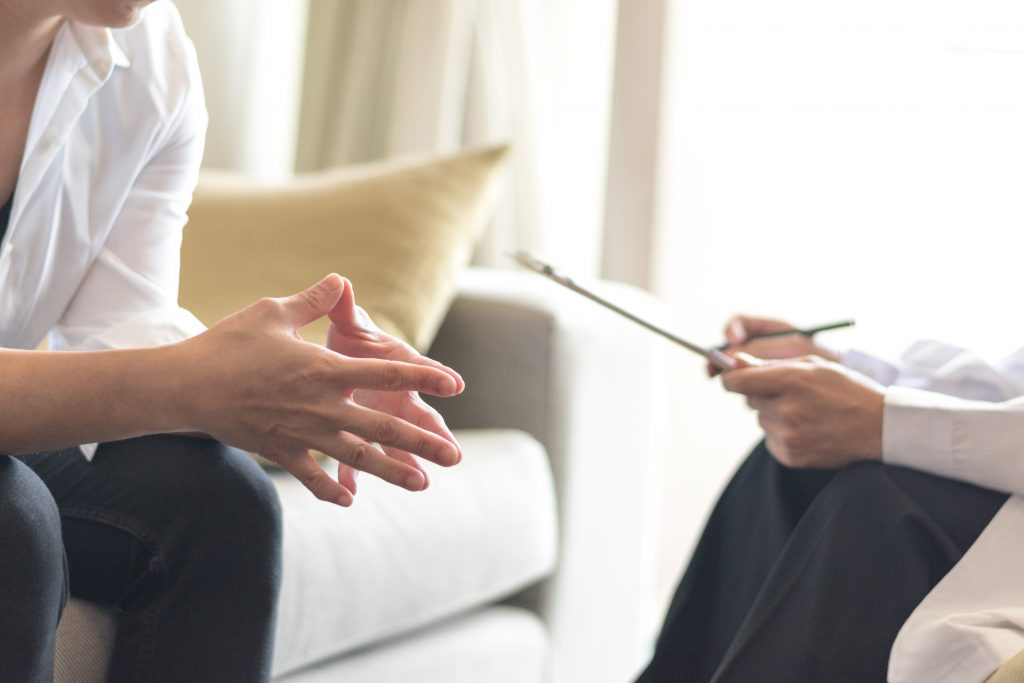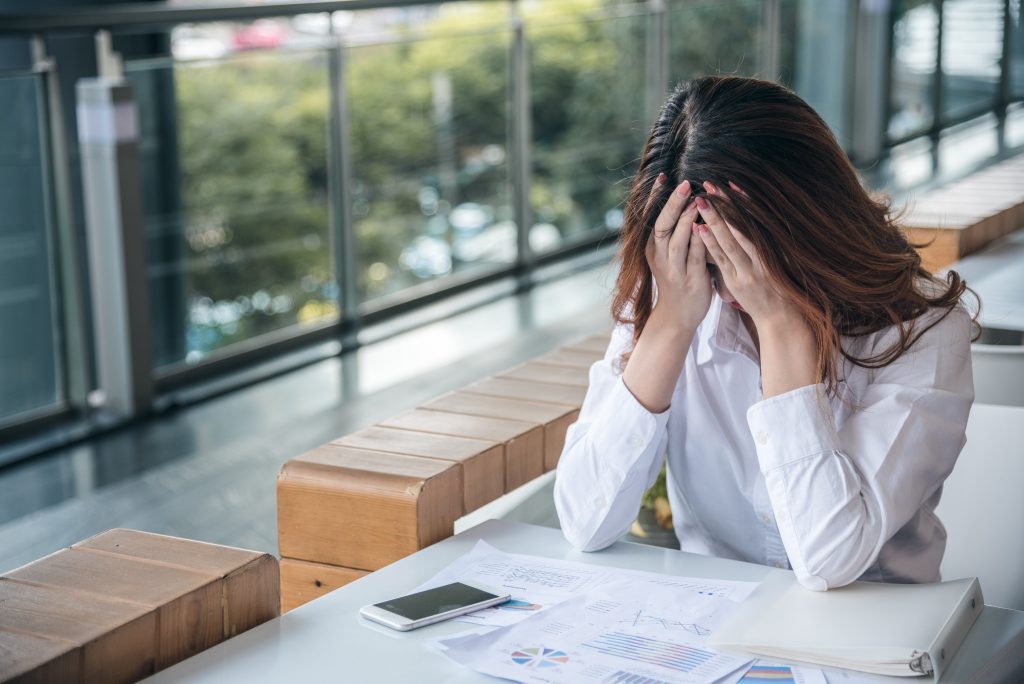May 27, 2021
Understanding Depression & Anxiety
Depression and anxiety are common mental health conditions that can affect your quality of life. Knowing how to recognize signs of depression and anxiety in yourself or a loved one can empower you to seek help and treatment when needed.
Continue reading to learn more about symptoms and treatments for depression and anxiety, and how to know when it’s time to consult your healthcare provider.
What Is Depression?
Depression is a persistent feeling of sadness and loss of interest that interferes with your activities and everyday life. It’s normal to experience brief moments of depression now and then, but long-lasting depression is a serious mental health disorder that can negatively affect your thoughts, feelings, and behaviors. Depression can grow worse over time without treatment, and increase your risk for a wide range of physical and psychological health problems.
What Causes Depression?
Depression is thought to be caused by changes in hormones and brain neurotransmitters (chemicals) that play a role in your mood. These changes may be genetic or influenced by lifestyle behaviors such as drug and alcohol abuse, poor nutrition, and low physical activity level. Traumatic or stressful events, chronic illness, and a history of other mental health disorders are other risk factors of depression.
What Are Symptoms Of Depression?
Depression symptoms can range from mild to severe and usually occur every day. Here’s how to know if you have depression:
- You experience feelings of sadness, hopelessness, and emptiness.
- You’ve lost interest and pleasure in nearly all of your normal activities.
- Your sleep patterns have changed, and you may have insomnia or sleep too much.
- You feel too tired and fatigued to perform even the smallest of tasks.

- You become easily frustrated, angry, or irritable, including over small matters.
- You often feel restless, anxious, or agitated.
- Your eating habits have changed and you have gained or lost weight.
- You often feel guilty or worthless or get fixated on past wrong-doings.
- You experience problems with memory, concentration, and decision-making.
- You have unexplained health problems such as headaches.
- You think about suicide or have attempted suicide.
Depression isn’t always noticeable, which can make it difficult to know if you need help. Signs of depression you may not notice include always striving for perfection, moving and speaking slowly, and being constantly pessimistic. Low sex drive, forced happiness, and using drugs and alcohol to self-medicate are other common signs of depression you may not notice.
What Does Depression Feel Like?
Depression can often make you feel as though you will never be happy again, and that there is no joy or pleasure left to be had in your life. You may feel overwhelmed and exhausted on a daily basis, and experience a variety of physical health problems you can’t explain. You may not be able to sleep or eat or feel as though all you want to do is sleep or eat. Depression affects each person differently, which is why it’s important to know how to recognize its symptoms.
How Can You Tell If Your Sadness Is Depression?
Sadness that sticks around and never goes away can potentially be depression. Sadness can be caused by a single event such as losing your job or breaking up with your partner and is usually only temporary. If you suffer from depression, your sadness will last for longer than a few weeks and be accompanied by many other symptoms.
What Are Different Types Of Depression?
There are several types of depression, all of which share many of the same symptoms. The most common types of depression are:
- Major depressive disorder, also known as clinical depression, is characterized by all of the above depression symptoms.
- Persistent depressive disorder, also known as dysthymia, is characterized by having a low mood for at least two years that has not reached the intensity of clinical depression.
- Bipolar disorder is characterized by periods (episodes) of abnormally elevated mood or euphoria known as mania and periods of major depression.
- Seasonal affective disorder tends to occur mainly during periods of fall and winter when there is less sunlight.
- Postpartum depression occurs in women after childbirth due to hormonal fluctuations that affect mood and brain chemistry.
- Premenstrual dysphoric disorder begins shortly after ovulation and ends when menstruation starts.
Can Depression Worsen Other Health Conditions?
Depression has serious effects on the body that can potentially cause or worsen other health conditions. For instance, preoccupation with bothersome thoughts can lead to insomnia and difficulty sleeping. Feelings of anxiety and stress can constrict blood vessels to increase the risk of heart disease and stroke. Changes in appetite may lead to malnutrition or weight gain—the latter of which can worsen obesity.
How Is Depression Diagnosed?
Depression is often diagnosed using a combination of tests and screening tools. Your doctor may perform a physical exam and order blood work to rule out other conditions that affect mood. You may also be given a questionnaire to fill out regarding your symptoms, thoughts, and behaviors, and be referred to a mental health professional who can speak with you and perform an evaluation to properly diagnose your condition. Karrah Black, PA-C, a physician assistant with Healthcare Associates of Texas in Irving says, “The questionnaire that I use in practice is called the PHQ-9. It is 9 questions that can help us determine if someone is at risk for depression.”
How Can Depression Be Treated?
People with depression often feel as though their symptoms will always persist, and have no idea how to get out of depression. Fortunately, depression can often be effectively treated with a combination of medications and talk therapy. Healthy lifestyle behaviors may also help balance hormones and brain chemistry to reduce depression.
Here’s how to overcome depression:
- Work with your doctor on finding the right medication. There is no one-size-fits-all medication for depression, as everyone has their unique brain chemistry. Your doctor may have you try different medications including antidepressants and selective serotonin reuptake inhibitors (SSRIs) until you find one that works best for you.

- Engage in talk therapy with a mental health professional. Talk therapy can help you replace harmful thoughts and behaviors with those that are healthier, and help you develop better coping skills.
- Stick with your treatment plan. Depression cannot be resolved overnight, and some medications may take several weeks before they affect your mood. Stick with your treatment regimen, and do not make changes to your treatment without permission from your doctor.
- Avoid using drugs and alcohol, as these substances can make symptoms worse and may also interact with medications.
- Improve your nutrition, as some healthy foods like fruits and vegetables contain nutrients that benefit mood and brain health.
- Exercise regularly, as exercise releases endorphins that naturally improve your mood, and can help balance hormones and improve other health problems.
Can Depression Be Prevented?
Depression cannot necessarily be prevented. However, there are steps you can take to reduce your risk. Experiment with new, effective ways to manage and reduce stress, such as exercising regularly or practicing deep breathing and mindful meditation. Establish a strong support network of friends and family you can talk to when times are difficult, and reach out to your healthcare provider the moment you realize you may be suffering from extreme sadness or depression.
What Causes Anxiety?
Anxiety may be caused by any one of several factors, such as traumatic events or the use of medications that list anxiety as a side effect. Genetics, a family history of anxiety, substance abuse, and chronic stress are other potential causes of anxiety. Experiencing some anxiety from time to time is normal, but anxiety that doesn’t go away may be a sign of an anxiety disorder.
What Are Symptoms Of Anxiety?
Anxiety symptoms can range from mild to severe. Here’s how to know if you have anxiety:
- You constantly feel nervous, restless, tense, and on edge.

- You sweat on a frequent basis.
- Your breathing and heart rates are usually higher than normal.
- You frequently experience a sense of impending doom or panic.
- You tend to shake and tremble frequently.
- You constantly feel weak, tired, and fatigued.
- You have difficulty sleeping or experience insomnia due to racing thoughts.
- You experience frequent gastrointestinal problems such as diarrhea and nausea.
- You have a difficult time controlling thoughts of worry and stress.
- You try to avoid people, places, and events that trigger anxiety.
- You experience difficulty concentrating due to preoccupation with worry.
Some symptoms of anxiety are less obvious, but common among those who suffer from this mental health condition. Signs of anxiety you may not notice include avoiding spontaneous activities that expose you to the unknown and avoiding all social situations. You may also procrastinate to avoid facing stressful situations and apologize to others constantly to avoid confrontations or disagreements.
What Does Anxiety Feel Like?
Anxiety is characterized by a variety of physical and psychological sensations that are far more intense than those experienced during moments of stress. Anxiety can cause your heart to beat extremely fast and trigger nausea, diarrhea, dizziness, sweating, and difficulty breathing. “Many of our patients presents with anxiety complaining of chest pain as their main symptom. This may occur when driving or even out of the blue,” Black explains. You may be unable to sleep at night due to racing thoughts and worries. You may also feel as though you cannot relax, even on weekends after completing important chores and errands. Many people with anxiety think about their problems repeatedly on a loop, thinking that doing so is productive when it may actually make their anxiety worse.
How Can Anxiety Affect Your Everyday Life?
Anxiety can prevent you from trying new things, and from being productive at work or home due to preoccupation with worrisome thoughts. Anxiety can lead to serious health problems that affect your ability to do everyday tasks, and that can worsen your quality of life. For example, thinking about a particular problem before you go to bed can prevent you from falling asleep and lead to insomnia that affects your ability to function optimally the next day.
Can Anxiety Be Treated Without Medication?
Medication is one of the main treatments for anxiety. However, those who want to avoid medication can try talk therapy, and learn how to deal with anxiety naturally using lifestyle or home remedies.
Talk therapy (also known as cognitive behavioral therapy) by a licensed professional counselor or psychologist can teach you how to calm anxiety. “Cognitive behavioral therapy teaches you how to recognize your anxiety so that you can manage it, often by diffusing the anxiety with coping techniques,” Black explains. CBT helps to turn harmful thought processes and behaviors into those that are healthier and more productive.
Other ways to treat anxiety on your own include exercising regularly or practicing yoga, which naturally reduces stress and anxiety. “Mindful meditation has also been proven to help improve anxiety levels in up to 2 months,” Black adds. Reduce your intake of caffeine, nicotine, and alcohol, as all these substances may worsen anxiety.
Depression vs Anxiety: What Are the Similarities and Differences?
Depression and anxiety have a complex relationship, and can often co-occur or lead to the other condition. However, though these conditions may seem similar to one another, their psychological and physical symptoms are quite distinct. The main similarities between anxiety and depression are that they are both associated with low levels of brain chemicals including serotonin, dopamine, and epinephrine.
People with anxiety tend to worry all the time about current and future situations, and may avoid situations for the sake of keeping symptoms at bay. In contrast, people with depression tend to feel sad and hopeless all the time and may think about death or suicide frequently. Not all people with depression experience sadness or hopelessness. “Other patients just feel tired and apathetic. Frequently, patients with depression will present complaining of being unable to have the drive to get out of bed,” says Black.
How To Help Someone With Anxiety Or Depression
Learning how to recognize signs of anxiety and depression is the first step you can take toward helping someone who may have one or both disorders. Offer the person your emotional support and understanding, as anxiety and depression are serious and difficult to cope with on one’s own. If the person needs help but seems overwhelmed about the idea of seeking professional treatment, offer to help them find a healthcare provider or make an appointment with their doctor.
When Should You See a Counselor Or Healthcare Provider?
Contact your healthcare provider if anxiety or depression are interfering with your everyday life or causing other health problems. You should also see your doctor right away if you are contemplating suicide, or are unable to care for your own basic needs. Getting help today is the first step you can take to become healthier and learn how to manage your symptoms.
Healthcare Associates of Texas can treat you or your loved one for anxiety and depression. Contact us today to request an appointment and learn more about our available services.
Follow us on social media! Facebook, Instagram, Twitter, YouTube.
DISCLAIMER
The information featured in this site is general in nature. The site provides health information designed to complement your personal health management. It does not provide medical advice or health services and is not meant to replace professional advice or imply coverage of specific clinical services or products. The inclusion of links to other web sites does not imply any endorsement of the material on such websites.
